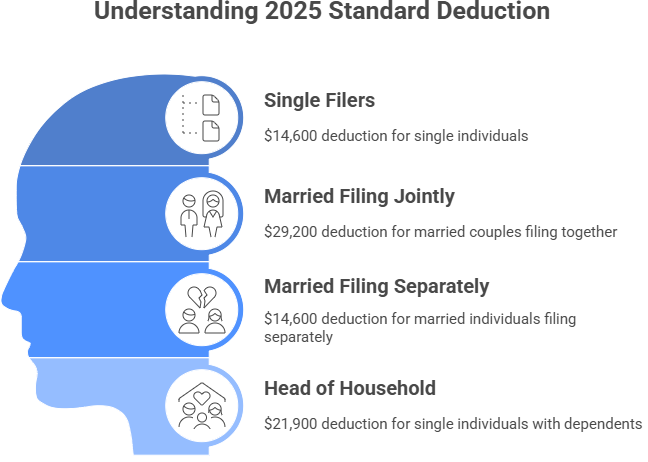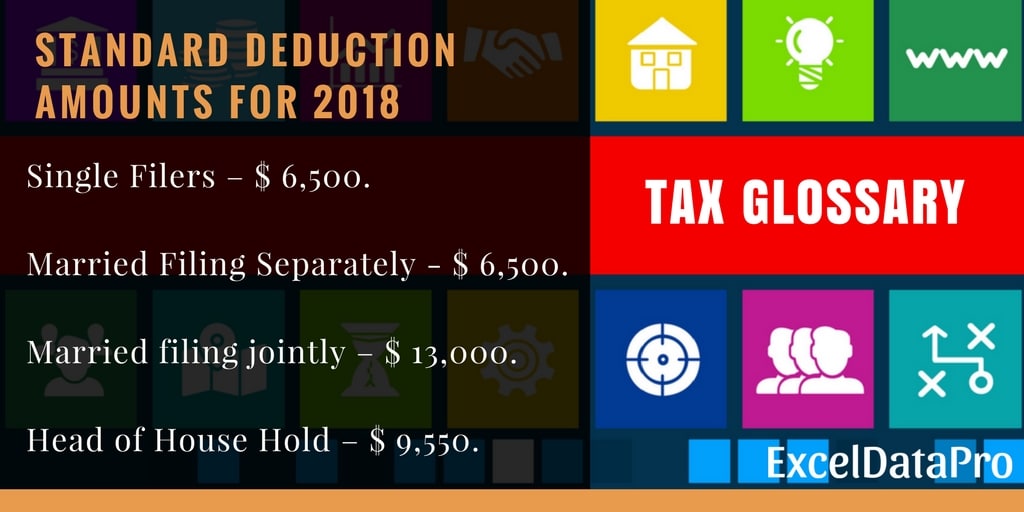How breaking down the FEIE Standard Deduction helps smarter tax planning for expats
The Foreign Earned Earnings Exclusion Explained: A Guide to Enhancing Your Conventional Deduction
The Foreign Earned Income Exclusion (FEIE) is a crucial tax stipulation for united state citizens and resident aliens living abroad. It permits qualified expatriates to omit a significant section of their foreign-earned earnings from government taxes. Recognizing the subtleties of FEIE can lead to considerable tax obligation savings. Several people ignore crucial details that might affect their qualification and advantages. Checking out these elements may disclose possibilities for enhanced tax outcomes.
Recognizing the Foreign Earned Earnings Exclusion
Although lots of expatriates seek opportunities abroad, understanding the Foreign Earned Revenue Exemption (FEIE) is crucial for handling their tax obligations. This arrangement permits U.S. citizens and resident aliens living overseas to leave out a certain quantity of their earned earnings from federal tax. The FEIE was developed to relieve the tax obligation burden on people who stay outside the USA, acknowledging the unique financial obstacles they may encounter.

Eligibility Demands for FEIE

Exactly how to Claim the FEIE
To efficiently declare the Foreign Earned Revenue Exemption (FEIE), taxpayers need to initially verify their eligibility based on details standards - FEIE Standard Deduction. The procedure involves several steps, including submitting the ideal kinds and supplying needed documentation. Comprehending these requirements and treatments is important for making the most of tax obligation advantages while living abroad
Eligibility Needs
Eligibility for the Foreign Earned Income Exemption (FEIE) rests on conference specific criteria set by the internal revenue service. To certify, individuals need to be U.S. citizens or resident aliens that gain earnings while functioning abroad. They need to establish an international tax home, which indicates their primary workplace is outside the USA. Additionally, candidates need to satisfy either the Authentic House Examination or the Physical Existence Examination. The Bona Fide House Test needs that a taxpayer lives in an international nation for an entire tax year, while the Physical Presence Test requires costs at the very least 330 full days in an international nation during a 12-month duration. Fulfilling these demands is vital for declaring the FEIE.
Filing Refine Actions
Exactly how can one efficiently browse the procedure of asserting the Foreign Earned Income Exemption (FEIE)? Individuals have to determine their eligibility based on the physical visibility examination or the bona fide residence examination. Once verified, they ought to complete IRS Kind 2555, which details foreign income and residency. This kind should be affixed to their yearly tax obligation return, generally Kind 1040. It is important to precisely report all foreign made revenue and guarantee conformity with the IRS standards. Furthermore, taxpayers should keep appropriate documentation, such as international tax obligation returns and evidence of residency. By following these actions, people can effectively claim the FEIE and possibly minimize their gross income substantially, improving their total monetary placement.
Calculating Your International Earned Earnings Exemption
While numerous migrants look for to maximize their monetary benefits abroad, comprehending the calculation of the Foreign Earned Earnings Exclusion is crucial for accurate tax coverage. The Foreign Earned Earnings Exclusion allows qualifying individuals to leave out a certain amount of their international earnings from U.S. tax, which is changed every year for inflation. To determine this exemption, expatriates have to determine their overall foreign made earnings, which typically includes salaries, salaries, and professional costs made while residing in a foreign nation.
Next, they should complete IRS Type 2555, supplying information regarding their international residency and work status. FEIE Standard Deduction. It is very important to meet either the bona fide home examination or the physical existence examination to qualify for the exemption. When these aspects are developed, the optimum allowable exemption quantity is used, reducing the person's gross income considerably. Exact computations can lead to significant tax obligation financial savings for expatriates living and working abroad
The Influence of FEIE on Various Other Tax Obligation Benefits
The Foreign Earned Income Exclusion (FEIE) can affect an individual's qualification for sure tax benefits, consisting of the typical reduction. By leaving out international gained earnings, taxpayers may discover their modified gross earnings influenced, which in turn can influence their certification for different tax obligation credit scores. Comprehending these interactions is crucial for enhancing tax obligation outcomes while living abroad.
Interaction With Standard Deduction
When individuals receive the Foreign Earned Revenue Exemption (FEIE), their eligibility for the typical reduction might be impacted, potentially changing their overall tax responsibility. The FEIE allows taxpayers to omit a specific quantity of earned income from united state taxation, which can cause a minimized gross income. Consequently, if the excluded income goes beyond the common deduction, it can diminish the benefit of asserting that reduction. In addition, taxpayers that use the FEIE may locate that their capability to detail reductions is also influenced, as certain expenses might be affected by the exclusion. Recognizing this interaction is vital for expatriates to maximize their tax obligation advantages while guaranteeing conformity with united state tax regulations
Qualification for Tax Credit Scores
Steering with the complexities of tax obligation credits can be challenging for expatriates, particularly given that the Foreign Earned Income Exclusion (FEIE) can substantially affect eligibility for these advantages. The FEIE allows qualified people to exclude a considerable section of their foreign revenues from U.S. taxes, however this exclusion can additionally influence access to numerous tax credit scores. For example, taxpayers that use the FEIE may locate themselves disqualified for credit reports like the Earned Income Tax Credit Report (EITC), as these credit scores normally require taxable earnings. In addition, the exclusion may restrict the ability to assert particular deductions or credit scores related to dependents. Therefore, understanding the interplay between the FEIE and readily available tax credit reports is essential for expatriates aiming to optimize their tax obligation scenario.
Common Mistakes to Prevent When Asserting FEIE
Frequently, expatriates experience a number of mistakes while asserting the Foreign Earned Earnings Exclusion (FEIE), click here now which can result in expensive mistakes or missed out on chances. One regular error is stopping working to meet the physical existence or bona fide home examination, which is vital for eligibility. Additionally, expatriates commonly overlook the my response demand to file Kind 2555 properly, resulting in unreliable or incomplete entries.
An additional typical mistake includes incorrectly computing international earned income, as lots of do not make up all relevant income sources. Some migrants mistakenly assume they can exclude all their income, unaware of the restrictions on the exemption quantity. Neglecting to maintain appropriate documents, such as traveling days and residency standing, can threaten an insurance claim. Ultimately, misinterpreting the effects of the FEIE on various other tax credit scores may lead to unintentional tax obligation liabilities. Understanding of these mistakes can help with a smoother declaring process and optimize possible advantages.
Resources for Expats Navigating U.S. Taxes
Steering U.S. tax obligation responsibilities can be testing for expatriates, particularly after coming across risks in declaring the Foreign Earned Earnings Exemption (FEIE) To aid browse these complexities, a range of resources are offered. The IRS web site supplies substantial info on tax types, frequently asked questions, and guidelines specifically tailored for migrants. Additionally, companies like the American People Abroad (ACA) and the Deportee Tax obligation Professionals deal guidance and assistance to guarantee conformity with tax regulations.
Online forums and communities, such as the Expat Online forum, enable expatriates to share experiences and insights, cultivating a helpful atmosphere for those encountering comparable challenges. In addition, tax preparation software application, like copyright and H&R Block, often includes functions developed for expats, making the declaring procedure extra user-friendly. Engaging with these resources can equip expatriates to much better understand their tax obligation commitments and take full advantage of benefits like the FEIE.
Frequently Asked Questions
Can I Assert FEIE if I'M Independent Abroad?
Yes, freelance individuals abroad can claim the Foreign Earned Income Exemption (FEIE) To certify, they must satisfy certain requirements regarding residency and revenue, guaranteeing they stick to internal revenue service guidelines for expatriates.

Is the FEIE Applicable to Foreign Pensions?
The Foreign Earned Revenue Exclusion (FEIE) is not applicable to foreign pensions. Pensions are thought about unearned income and do not receive the exemption, which particularly uses to gained income from work or self-employment abroad.
What Takes place if I Go Back To the U.S. Mid-Year?
If an individual go back to the U.S. mid-year, they may require to change their tax situation. Their qualification for certain deductions and exemptions, including the Foreign Earned Income Exclusion, might be affected by their residency status.
Can FEIE Be Claimed With Other Deductions?
Yes, continue reading this the Foreign Earned Earnings Exclusion (FEIE) can be claimed alongside various other deductions. However, care should be required to assure proper conformity with tax obligation policies, as particular restrictions may apply based upon private conditions.
How Does FEIE Impact State Tax Obligation Commitments?
The Foreign Earned Revenue Exclusion can minimize a taxpayer's government earnings tax liability, but it does not instantly affect state tax obligation obligations, which vary by state and might still require reporting of international earnings.
Several expatriates look for opportunities abroad, comprehending the Foreign Earned Earnings Exemption (FEIE) is necessary for managing their tax responsibilities. By omitting foreign gained revenue, taxpayers may discover their modified gross revenue impacted, which in turn can influence their qualification for various tax credit histories. Steering with the complexities of tax credit reports can be testing for expatriates, especially given that the Foreign Earned Income Exemption (FEIE) can greatly impact eligibility for these benefits. Taxpayers who utilize the FEIE might find themselves ineligible for credit ratings like the Earned Revenue Tax Credit (EITC), as these credit histories commonly call for taxable earnings. Steering U.S. tax responsibilities can be challenging for expatriates, especially after experiencing mistakes in claiming the Foreign Earned Revenue Exclusion (FEIE)